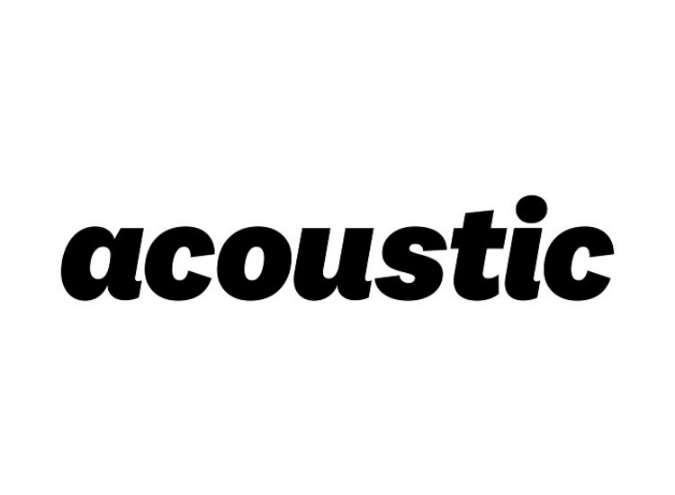The April announcement that IBM’s marketing and commerce solutuons would be acquired by private investment firm Centerbridge Partners was certainly news; but the news seemed to be that IBM was finally ceding any pretense to leadership in the marketing tech space to Adobe, Oracle, and Salesforce. Maybe so, but we learned today that the story of those divested technologies may be just beginning.
Launched today (following the U.S. closure of the acquisition last week), Acoustic is the new brand offering that suite of solutions, led by a team including former IBM executives; and thanks to its history, this “start-up” already boasts a client base of 3,500 brands. I jumped on the phone with Acoustic’s CEO, Mark Simpson, to fill in some detail.
Writing about the marketing cloud space a few years back, we bracketed IBM with the big players. But recently, Adobe, Oracle, and Salesforce seem to have dominated the discussion, with SAP CX, and arguably Pega, entering the field. Does Acoustic face a challenge in establishing a high profile? “There’s two elements to that,” said Simpson, a former Oracle and IBM executive. “We’re launching a new brand, we’ve had wonderful feedback from clients, partners, the press, and analysts today. What’s more important is how we accelerate our growth with better products, solutions, and services out in the market. That’s where we see ourselves winning. We are still one of the top four marketing clouds in terms of size, coming out of IBM. With over 1,100 employees, and 3,500 clients, we’re a fairly large start-up. But where the excitement comes from is that we’ve shed ourselves of some of the legacy technologies and older ways of working, so that we can purely focus on the marketing division within an organization as a client.”
There’s a big commitment involved, said Simpson. “We’re investing between 10 and 20 million dollars over the next 12 months in completely re-platforming all of our products, removing all of the tech debt and legacy code; we’ll be implementing completely new user interfaces; and we’ll be putting in a number of key future-looking technologies and processes, such as data privacy, and AI, where we’re already leading the space. We’re architecting around a much more modern platform than our competitors have, and that will stand us in great stead in terms of pushing our company out there in the market.”
Simpson differentiated Acoustic in terms of its focus on the CMO. “Adobe is known for creative, Oracle is known for data, Salesforce is known for CRM; we are focused on the CMO, on the marketer. I think that focus, along with an accelerated roadmap, will put us in a really strong position.”
At the same time, this seems to be swimming against the stream. Acoustic’s main competitors are now insisting that marketing is just one part of the customer experience, and that the seamless CX suite —
cutting across marketing, sales, and service — is now table stakes. Simpson was skeptical. “The whole basis of this company is, we want to keep it a little bit more real. There’s wonderful messaging coming out of a number of companies, but if you just look at CMOs, they don’t provide a joined-up, seamless experience even within marketing; even between owned, paid, and earned media. So [for our competitors] to go out and claim a massively joined-up and consistent experience, really to me sounds more like a justification for their acquisition strategy, and something that’s going to happen in ten years’ time, rather than the reality of what’s happening in the market.”
Keeping it real, for Simpson, means bringing back the human touch, giving the CMO a consistent view of their customer, and joining up the data. “We’re an open eco-system, so we’re integrated with Salesforce CRM, we’re integrated with a number of call center applications for customer services, but we want to make the CMO win. And I don’t think there is the focus on that in the market at the moment. Nice words, but the CMO is struggling to connect what they have at the moment, and that’s where we’re going to be very strong.”
The Watson Advertising business was not included in the acquisition by Centerbridge and remains part of IBM.








